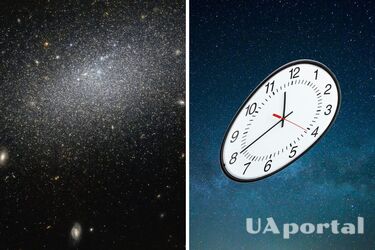Scientists have discovered that time in the Universe used to be five times slower

Researchers from the University of Sydney measured and compared the brightness of quasars at different stages of the Universe's development, including a billion years after the Big Bang, and concluded that time moved five times slower in the past. This interesting information was published on the Scimex portal.
According to Albert Einstein's theory of relativity, the speed of motion affects the perception of time. In particular, time passes differently for objects moving close to the speed of light and for stationary objects. Time dilation and field reversal are also associated with this theory. This means that the distant ancient Universe must have worked much slower than the modern Universe.
Scientists have also proved that the Universe continues to expand, and this has led to the conclusion that it is slowing down over time. From the point of view of an observer, the phenomenon occurs that the past is moving more slowly than the present moment. However, it has proven difficult to measure exactly how much slower this is.
Scientists at the University of Sydney have conducted a new study that may be able to answer this question. They used 200 quasars as "clocks" to measure time in the early stages of the Universe's development, in particular a billion years after the Big Bang. By analyzing the motion of quasars, they were able to map the process of the expansion of the Universe in time.
"If we look back to when the Universe was just over a billion years old, we see that time was moving five times slower. If we were there, at the very beginning of the Universe, one second would seem the same as it does now. But from our perspective, nearly 12 billion years into the future, that early time seems stretched out," explained Geraint Lewis, lead author of the study.
This new study sheds light on the specifics of time in the early Universe and helps us better understand its evolution.
As a reminder, scientists have answered which asteroids can destroy the Earth and when it can happen.
If you want to get the latest news about the war and events in Ukraine, subscribe to our Telegram channel!
